Not quite certain if SPC flooring is the right fit for your home?
Read on to explore everything about SPC flooring, it’s pros and cons, and understand why it’s causing a buzz in the interior design industry.
1. My First SPC Flooring Experience:
During the pandemic, while I was working on various projects, one of my clients wanted to change the entire flooring of their house.
There was an obvious shortage of workers. So, demolishing the existing vitrified tiles and installing new, suitable ones was a challenging task.
During our discussion about the possibility of project delays, we understood that the client didn’t want to change the old flooring because it was outdated or in poor condition. Instead, they wanted to infuse warmth and style into their living spaces.
They were primarily looking for the look of wooden flooring.
And that’s the first time I used SPC on my project.
(1.1) Compatibility:
Obviously, options like timber flooring exude luxury and charm, and I had used them on multiple projects, but there was a catch!
‘Timber flooring isn’t exactly compatible with moisture.’
Additionally, we aimed to have the same flooring throughout the entire home. However, had we chosen timber flooring, we would have needed to use it for the dry areas only and opt for a different flooring option for wet or moisture-prone zones like the bathroom entrance, the kitchen, or the pantry.
This could have resulted in two different types of flooring within the same home, creating patches, which was something we wanted to avoid.
Furthermore, hardwood flooring comes with a hefty price tag. So, hardwood was out of the question.
(1.2) The Impression-Free Solution:
Regular Vinyl flooring was also an option, as it can mimic the look of wood and is budget friendly.
However, I was not okay with vinyl flooring because of the potential impressions it might show from the tile joints (grout lines) below.
Me and my team conducted thorough research on these floorings before finalising this product.
The installation was swift, we completed the work in just 2 days, and the outcome was truly amazing.
Three years on, the client is as happy as they were on the first day after they saw the completed installation.
To further assist you with your overall home improvement decisions, take a look at our other blog that discusses essential considerations for your home’s interior.
2. Getting to Know SPC Flooring:
So, Today, I’m excited to share all the important details about SPC flooring, along with the pros and cons, that you should know before making a decision.
If you’re considering SPC flooring, this information will help you make an informed choice.
(2.1) What Is SPC?
SPC is a water-resistant, durable engineered material. It closely mimics traditional flooring materials like wood, stone, or ceramic.
Yes, it doesn’t just mimic wood – it can capture the design patterns of stone and ceramic too.
It’s well-known for its resilience and easy maintenance. It is available in plank or tile formats and also known as Rigid-core luxury vinyl flooring.
SPC stands for Stone Plastic (or Polymer) Composite and typically comprises four or five layers, depending on whether foam or cork backing is used.
(2.2) What is SPC flooring made of?
SPC, or Stone Plastic Composite, boasts a core that’s incredibly tough, composed of powdered limestone (calcium carbonate), plasticizers, and polyvinyl chloride (PVC).
To break it down even further, SPC flooring combines several layers to achieve its exceptional performance.
Five layers of SPC typically comprises:
- A Top layer- UV coating that works its magic in shielding your floors from the sun, preventing fading and discoloration.
- A wear layer– your floor’s guardian angel, protecting it from stains and scratches.
- A decorative layer- where you have a plethora of colours and patterns to choose from – this is what gives your floors that wood-like appearance!
- The SPC core- itself, with its mix of powdered limestone, plasticizers, and PVC.
- Bottom layer- Finally, there’s the base layer, the solid foundation that supports the entire structure.
These layers work together to create flooring that’s as resilient as it is stylish.
(2.3) What are the Famous Brands of SPC Flooring Available in India?
If your flooring needs a quick makeover in just one day and you want a unique look, there are many companies available that manufacture or provide SPC flooring services in India. Here are some of the top brands available in India.
3. What are the Pros of SPC?
SPC is considered the “next generation” in vinyl flooring.
Let’s talk about its benefits.
(3.1) Waterproof:
SPC is a champ when it comes to water resistance.
It’s the go-to choice for spaces like basements, laundry rooms, kitchens, and hallways.
With SPC, you don’t need to select two different types of flooring – one for dry areas like bedrooms and studies, and another for wet areas.
(3.2) Easy to Install:
Installation is a breeze with SPC flooring. Even, DIY enthusiasts can install it with ease.
Thanks to those clever interlocking grooves, there’s no need for nails, glues or noisy installations.
You just start placing planks one by one, interlocking them effortlessly. SPC flooring can be installed over any hard surface without the hassle of extensive preparation.
(3.3) Easy to Cut:
You can trim SPC flooring to the required size with ease. Unlike wood, tile, or stone that demand special power tools, all you need for SPC is a trusty utility knife.
Just score the plank you want to cut, then flip it over and bend it away from the score line, resulting in a clean cut every time.
(3.4) Durable and long lasting:
SPC flooring possesses durability and longevity.
Its layered construction and material provide exceptional durability, making it capable of lasting over 20 years or even more with proper maintenance.
(3.5) High Foot Traffic Hero:
Ideal for spaces with heavy foot traffic. Perfect for Places with Lots of People Moving Around.
(3.6) Wallet-Friendly:
Here’s the best part – SPC flooring doesn’t break the bank. It’s a budget-friendly option compared to timber flooring, delivering the natural wood look you love without the hefty price tag.
(3.7) Versatile in Style:
SPC also offers a wide range of colours, designs, and textures, allowing you to find the perfect match for your home. Whether you’re after a wood or stone look, SPC has you covered.
(3.8) Thickness:
Plus, it comes in various thickness options. So, you can find the one that suits your specific needs perfectly.
(3.9) Easy to clean and maintain:
If you’re not a cleaning enthusiast or short on time for household chores, SPC flooring has got your back.
A quick sweep and a damp mop every now and then are all you need to keep your home spick and span.
(3.10) Bonus Tips:
Plus, if you ever come across any damaged planks, no worries! You can effortlessly replace individual pieces without the hassle of ripping up the entire floor.
Now that we’ve discussed the advantages of SPC flooring, let’s dive into some frequently asked questions (FAQs).
I’ll address common queries and provide you with all the answers you need to make an informed decision for your next flooring project.
4. Frequently Asked Questions about SPC Flooring!
So, welcome to my FAQ section!
Q1. Can you install SPC flooring over tile?
Well, yes! you can go ahead and install SPC flooring over ceramic or porcelain tile.
Just remember a few key things:
- Ensure the tiles underneath are in good condition, without cracks, wide gaps, raised edges, or uneven spots.
- Make sure the surface under the tiles is free from water damage.
- If you’re working with newly poured concrete, give it enough time to cure and dry before laying down your SPC flooring.
Q2. Does SPC flooring require glue?
No, thanks to the click-locking system, no glue, nails, or mortar are needed for installation.
Q3. Is SPC flooring waterproof?
Absolutely! SPC flooring is like a champ when it comes to handling water.
It can tackle spills without a hitch, which makes it perfect for spaces like laundry room, kitchens, basement and anywhere that might get a bit damp.
Thanks to its sturdy PVC core, it’s a lot more spill-resistant compared to other flooring types it imitates.
It’s notable that SPC flooring offers more resistance to mildew, and bacteria compared to wood flooring.
Q4. Is it termite-proof?
Yes, SPC is entirely termite-proof and resists borers.
These floor planks usually come with a lifetime warranty against termite damage, which is a unique feature.
You should check the warranty documents from your chosen brand.
Q5. Is SPC flooring suitable for kitchens?
Absolutely!
It’s a great choice for residential kitchens.
However, keep in mind that it’s not recommended for commercial kitchens due to potential issues with heat and fire, which could result in the emission of toxins.
Q6. Is SPC flooring slippery?
First, SPC is incredibly slip-resistant, making it great for young children who are still finding their balance and for senior citizens who need a stable surface.
Unlike vitrified tiles or marble, you won’t have to worry about SPC becoming slippery when it’s just been mopped and is still wet. Its textured surface helps maintain traction even when wet.
Q7. Can I use SPC Flooring in the Bathroom?
While these planks are water-resistant, it may not be the perfect fit for bathrooms. Here’s why:
1. Chemical Sensitivity:
It might not react well to strong bathroom cleaning chemicals, so you’ll need to be careful with the products you use.
2. Health Concerns:
In closed, hot and humid areas, there can be a slow release of volatile organic compounds (VOCs) from SPC, which are not ideal for indoor air quality.
So, while you technically can use SPC in bathrooms, it’s a smart move to avoid using it there.
It’s a good idea to check the manufacturer’s certification, especially if you’re using it in a hot climate.
Q8. Does this flooring fade over time?
Well, it’s not exactly fade-resistant.
Even though it usually comes with a UV layer for extra protection, if you install SPC flooring in a room with excessive direct sun light, it might little fade over time.
So, keep in mind that it might not be the ideal choice for areas like sunrooms or attached balconies.
Q9. How to Repair Damaged SPC Flooring?
You know, accidents can happen, and your SPC floor might end up with a scratch or two. But here’s the good news: SPC floor is surprisingly repair friendly.
Thanks to its handy click-and-lock installation, you can usually replace individual planks without too much hassle.
So, a wise choice might be to grab a few extra planks, about 3/4 of them, just in case you ever need to patch things up.
Q10. Can you mop it when it’s time for cleaning?
Definitely! Besides vacuuming, you should sweep and mop your SPC floor as needed.
Sweeping takes care of larger pieces of dirt and debris, and mopping handles the smaller stuff like dirt and grime.
And if you feel overwhelmed in planning your cleaning routine, then read our other blog here for more tips and to stay motivated in cleaning and tidying up.
Q11. How long can this flooring last?
Well, you can expect a reliable 15-20 years of service.
But here’s the kicker: If you treat it with the care-it deserves and handle it just right, it could even push its limits and stick around for a remarkable 25 to 30 years!
Q12. Which is more expensive, SPC or WPC?
WPC flooring is typically more expensive than SPC flooring.
The price difference primarily results from the higher cost of materials used in WPC and the overall product construction.
While many consider both SPC and WPC more affordable than many other flooring options like hardwood or stone, SPC tends to be the more budget-friendly choice of the two.
Q13. Which is better WPC or SPC?
Curious about what is the difference between SPC and WPC flooring and which is better?
Well, SPC and WPC are both waterproof materials.
WPC stands for Wood Plastic Composite, and is made from natural plant fibres like wood, bamboo, and hemp mixed with plastics.
When it comes to keeping things quiet in your space, WPC is the winner because of its wood composition; it’s more soundproof compared to SPC and provides better insulation.
However, here’s what you should know: SPC, is tougher than WPC.
It’s less likely to get dents if something heavy falls on it, although it may feel a bit firmer underfoot.
Plus, if we talk money, WPC might pinch your wallet just a bit more than SPC.
In short, there’s no definitive answer to whether SPC or WPC flooring is superior. It truly hinges on factors like where you want to install it, your budget, and your specific flooring preferences.
Q14. Is SPC flooring better than tile?
Selecting the perfect flooring is a crucial part of your home’s overall look and ambiance.
Tiles, whether they’re ceramic, porcelain, or vitrified, often steal the spotlight in new constructions and renovation projects, especially if your subfloor isn’t perfectly level.
Now, let’s discuss about SPC flooring. It excels in sound absorption and is less slippery, making it an excellent choice for homes with seniors and kids.
Plus, it’s super easy to install with its click-and-lock system.
This feature makes it perfect for those giving their home a second makeover. You won’t have to move out or deal with dusty disruptions from masons working on tile cutting and mortar fitting during renovation.
So, when you consider aspects like sound absorption, anti-skid properties, and ease of installation, SPC flooring emerges as the top choice over traditional tiles.
However, your final decision may depend on your specific needs and style preferences, as there’s no one-size-fits-all solution here!
Q15. Is SPC flooring more expensive than tiles?
Well, the good news is that SPC flooring is actually budget-friendly compared to hardwood and WPC flooring.
While comparing it with basic ceramic tiles, the initial cost of tiles might be lower. However, it’s essential to consider installation charges and the hassle of tile fitting, which can add up.
So, in that way, SPC flooring can be a cost-effective choice.
Q16. Which is better SPC or Timber Flooring?
Well, when it comes to a comparison between SPC and timber flooring, it really depends on your priorities and where you’re installing it.
As discussed, SPC is great for areas prone to moisture, and it’s more budget friendly. It’s also pretty resilient and easy to maintain. On the flip side, timber flooring isn’t water resistant and can be more expensive.
So, if you value durability and a lower price, SPC might be the way to go.
17. SPC vs. Vinyl Flooring – Spotting the Differences
SPC vs. Vinyl Flooring – How to Tell Them Apart?
People sometimes confuse SPC with traditional vinyl flooring. But the main difference comes down to what’s inside.
SPC boasts a stone plastic composite core, while vinyl relies on a PVC (polyvinyl chloride) core.
That stony core in SPC! It’s what makes it super tough and steady.
Q18. What is the minimum thickness for SPC flooring?
Most SPC flooring products range from 3.2mm to 7mm in thickness.
A thickness of around 5mm is considered a good balance between durability and ease of installation.
Q19. What is a good thickness for SPC flooring?
SPC floors with a thickness of 5mm to 6mm are suitable for high-traffic areas like shopping malls, public spaces, hotel lobbies, and more.
Typically, 5mm-6mm SPC flooring can last for 20 years with regular use.
Q20. Is thicker SPC flooring better, or is thinner better?
Thicker SPC flooring can offer enhanced durability and stability, but it may be more challenging to install. Thinner SPC flooring can be easier to install but might be less durable.
Proper installation on a flat and even surface is crucial, regardless of thickness.
Q21. Is SPC flooring scratch-resistant?
Yes, SPC flooring is quite scratch-resistant, when compared to hardwood and WPC flooring.
This is due to the top transparent coating called the wear layer, which makes SPC flooring resistant to scratches and stains.
However, it’s still a good practice to protect it from sharp objects and prevent furniture from causing scratches by dragging or pushing.
Q22. Can I wax or polish SPC flooring?
No, you should not wax or refinish SPC flooring.
It’s essential to lift and carry furniture instead of dragging it across the floor. Use wide floor protectors (furniture cups or felt pads) under chairs, tables, and heavy objects.
Q23. Can you put permanent cabinets on SPC flooring?
Well, SPC flooring is like a free spirit – it needs room to breathe.
So, if you’re planning to add some heavy cabinets, vanities, or maybe a fancy kitchen island, get those in place first.
After that, let the SPC flooring flow around them, giving it the space, it needs with a proper expansion gap.
And if you want to know how to properly plan furniture layout, read our other blog here.
Q24. What type of skirting is best suited for SPC flooring?
You can choose a skirting style that complements your SPC flooring’s design and colour.
Common choices include wooden, MDF (Medium Density Fibreboard), or PVC (Polyvinyl Chloride) skirting in colours that harmonize with your flooring.
5. Conclusion:
With its remarkable durability, water resistance, and a wide array of designs that can mimic the look of wood, stone, or just about anything your creative heart desires, SPC flooring brings an inviting vibe to your spaces.
It’s like having the best of both worlds – the elegance of timber without the fuss, and the moisture resistance of ceramic without the monotony.
I hope you found this blog helpful and stay tuned for more enlightening content on a variety of subjects in the future. If you have any questions or topics you’d like to see covered, please don’ hesitate to reach out.
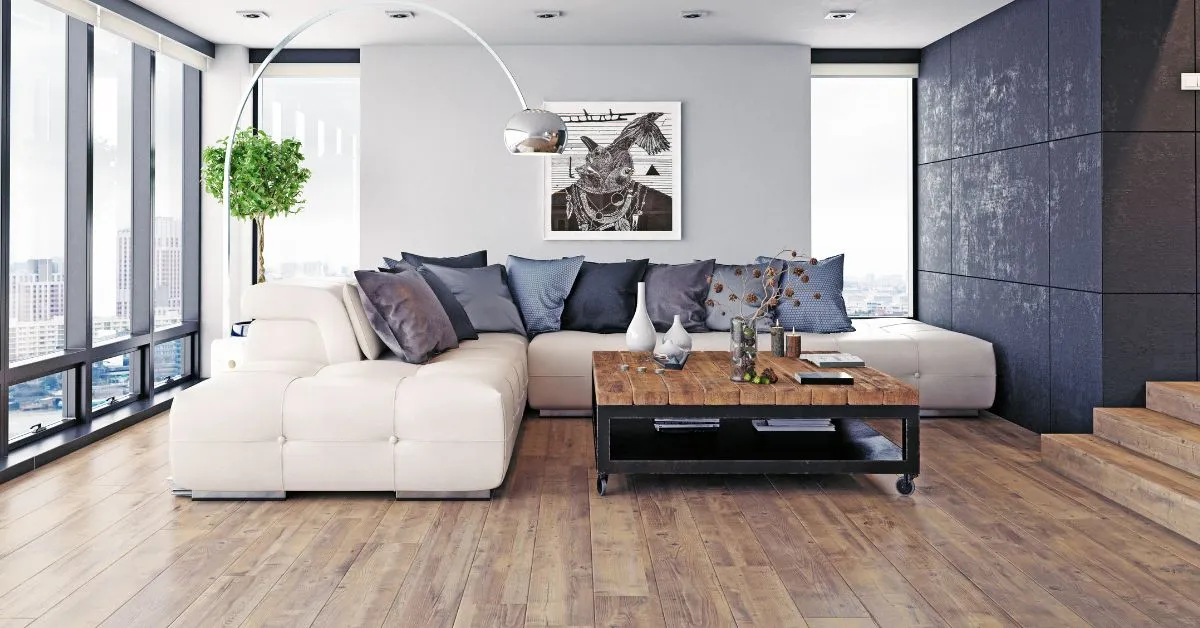
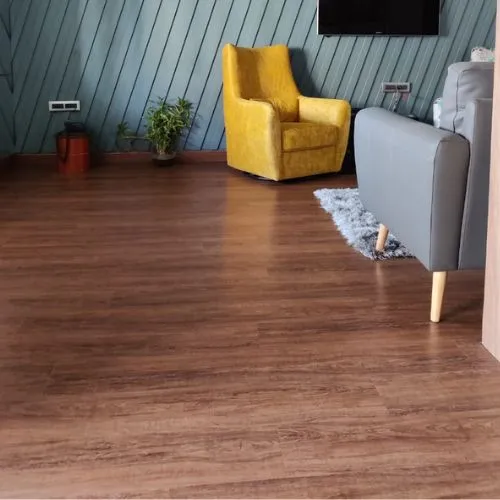
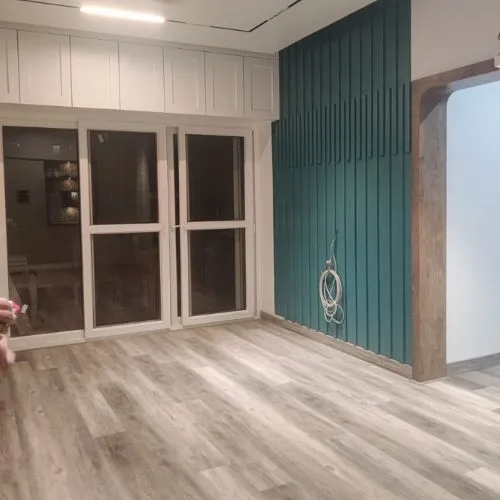
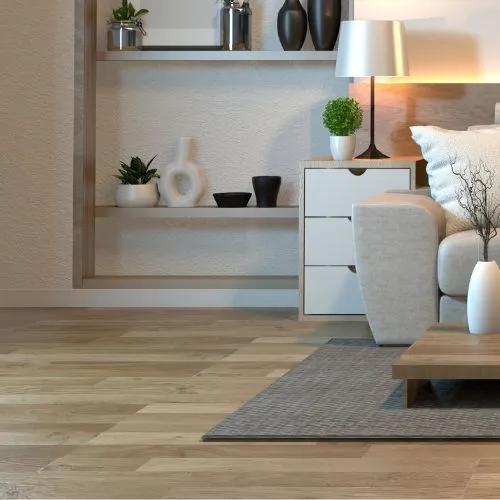
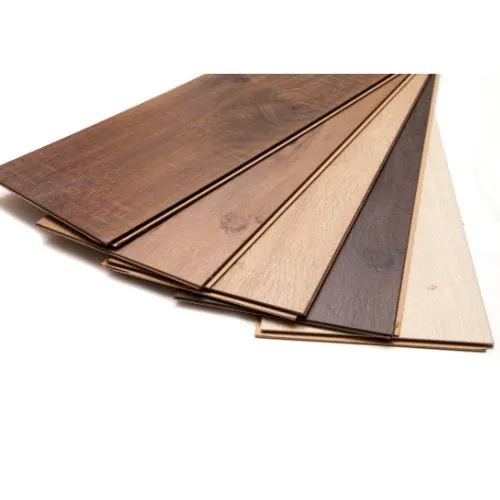
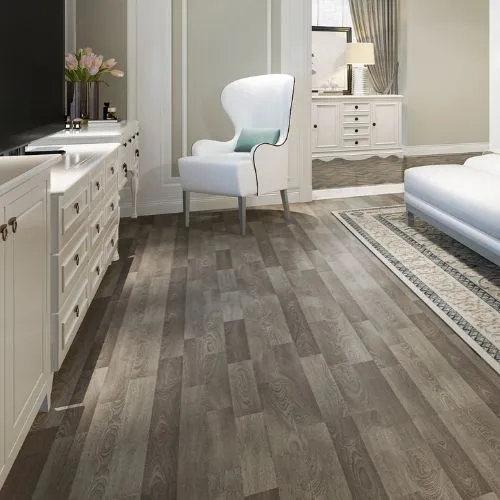
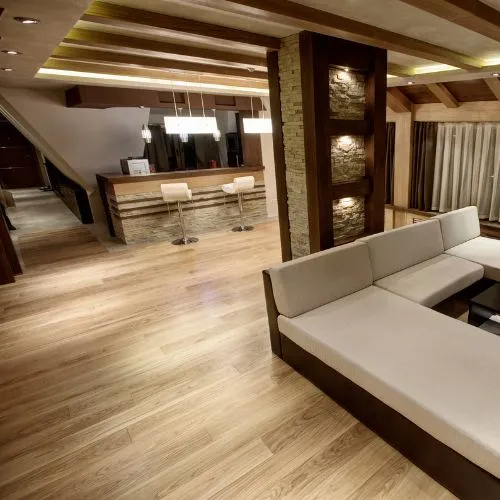
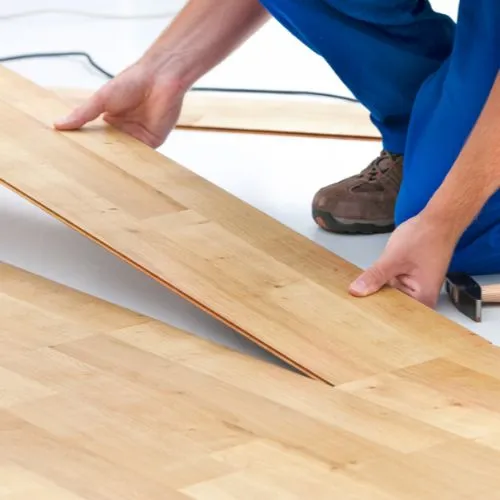
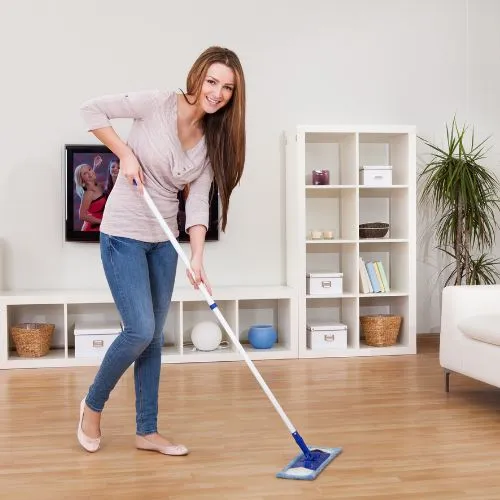






One Comment